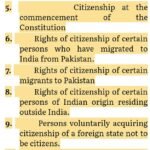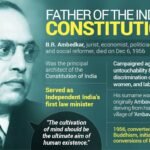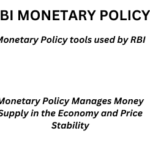Supreme Court Issues Strong Guidelines to Eradicate Child Marriages

The Supreme Court, On October 18, laid out broad guidelines on the Prohibition of Child Marriage Act (PCMA). The ruling not only addresses the stubborn issue of child marriages but also aimed at strengthening the PCMA.
The Court through its ruling
- Parliament to outlaw child betrothals. A binding commitment, among minors, will marry someone on a future date.
- Ruled that child marriages infringe upon the right to childhood
- Called for the appointment of dedicated Child Marriage Prohibition Officers (CMPOs) across districts
- Collectors and Superintendents of Police are tasked with proactively preventing child marriages in their districts. encouraged to take suo motu action against suspected child marriages,
- The integration of Special Juvenile Police Units (SJPU) into the child marriage prevention framework
- For the establishment of special fast-track courts dedicated to handling cases under the PCMA.
LEARNING FROM HOME/ WITHOUT CLASSES/ BASICS
Child marriage, according to Indian law, is a marriage in which either the woman is below the age of 18 or the man is below the age of 21.
The Act of 2006 criminalises the support of child marriages in India and provides for rigorous imprisonment for a term which may extend to two years, along with a fine in several cases, which may extend to rupees one lakh.
- Offence under this Act is cognizable and non bailable.
- The act provided that no woman shall be punishable with imprisonment.
The child who was a party to the marriage can get the child marriage annulled within the period of 2 years, the limitation period ,from the date of completion of 18 years. Only the children affected by child marriage can file a petition for voidability or annulment of marriage. Under certain circumstances, child marriage declared null and void by the Courts.






0 Comments